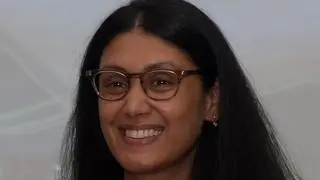IT industry body Nasscom has suggested that technology workers be exempted from any visa restrictions that may be imposed by the US, on the grounds that they are ‘essential workers’. .
This follows reports that US President Donald Trump could suspend employment visas, including H-1B. “As businesses reopen, Nasscom believes it is important for the US to access talent critical to the recovery phase. US enterprises need access to essential technology workers who are keeping critical infrastructure operating in the US. These include healthcare, hospitals and online and playing key roles to develop treatments for this disease — to name a few vital services,” it said in a statement.
Nasscom said highly skilled workers on non-immigrant visas (NIVs) such as H-1Bs and L-1s play a critical role in the delivery of the respective services and the development of products. Without their continued contributions, economic pain would worsen, industry would slow, and the timeline for a treatment and cure of Covid-19 could lengthen.
“Given this, we seek exemption for technology workers, as essential workers, from any restrictions that may be imposed in a second White House Proclamation. Priorities established by the DHS’s CISA (Cybersecurity and Infrastructure Security Agency) that designates key categories of ICT workers as essential service, should help define the types of essential workers,” the statement said.
Skilled labour demand
Demand for high-tech skills remains strong among employers in the US labour market, even amidst the Covid-19 crisis. The unemployment rate for computer occupations (most common amongst H-1B visa holders) declined from 3 per cent in January 2020 to 2.5 per cent in May 2020, while the unemployment rate for all other occupations grew from 4.1 per cent to 13.5 per cent during the same period.
Further, in the 30-day period ending May 13, 2020, there were over 6.25 lakh active vacancy postings advertised online for jobs in computer occupations, including those most common to H-1B visa holders (as seen from an analysis of the Bureau of Labor Statistics’ Current Population Survey by the National Foundation for American Policy).
The data raise significant questions about the argument of the unemployment rate for computer professionals to justify the new restrictions on H-1B visa-holders and international students working on Optional Practical Training (OPT) permits, the statement pointed out.
NIV programmes like the H1-B and L-1 enable US businesses to bridge the STEM skills deficit in the country and access skilled tech workforce not available locally, thereby ensuring that they can deliver on projects that keep them on the leading-edge of global competitiveness, Nasscom said.
Aggressive policy changes
Global visa investment firm LCR Capital Partners said the first Executive Order signed by Trump on April 22, 2020, presented an aggressive approach to protect the US labour market following Covid-19; and further actions, yet to be published, suggest instrumental changes in immigrant policy for people who hold NIVs.
“We have seen immigration attorneys suggesting that their clients who hold H1-B and L-1 visas and are outside the US, return to the country as soon as possible. LCR has been in close contact with our clients who hold non-immigrant visas now and we are happy to see they decided to take the EB-5 road, which provides them with a permanent residency solution,” said Suresh Rajan, Executive Chairman and founder of LCR Capital Partners.








Comments
Comments have to be in English, and in full sentences. They cannot be abusive or personal. Please abide by our community guidelines for posting your comments.
We have migrated to a new commenting platform. If you are already a registered user of TheHindu Businessline and logged in, you may continue to engage with our articles. If you do not have an account please register and login to post comments. Users can access their older comments by logging into their accounts on Vuukle.